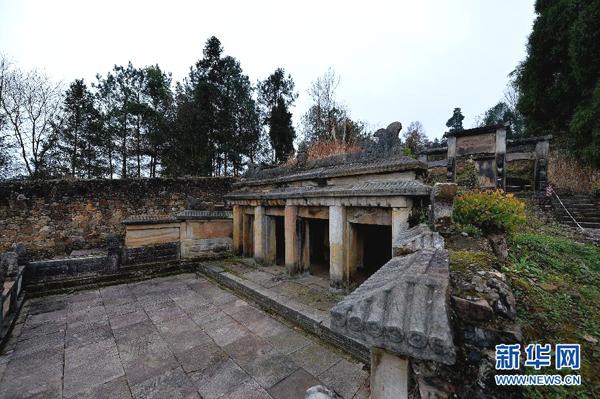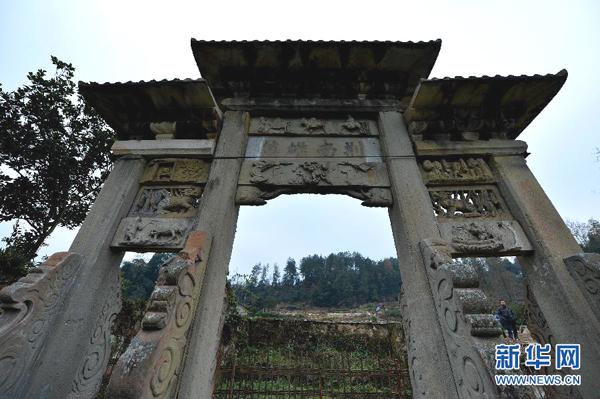

An ancient Tu Si tomb in Hubei Province (Xinhua)

A monument in an ancient Tu Si site in Hubei Province (Xinhua)
In southwest China, many well-kept buildings and monuments testify to the power of the Tu Si, the title the royal court gave to leaders of ethnic groups during ancient China. Preserving a piece of history stretching back as far as seven centuries, the Tu Si compounds are set to apply for a World Cultural Heritage.
The Tu Si compounds lie on the borders of Hunan, Hubei and Guizhou provinces, which will jointly submit the collection of structures for UNESCO's appraisal.
In ancient times, this area was densely populated by many ethnic groups. And the Tu Si compound is the largest, most complete and varied site of its kind in China. From the Yuan Dynasty till the end of the Qing Dynasty, the Chinese royal court conferred the title "Tu Si" to the leaders of ethnic groups. These ethnic leaders built cities, military forts, villages, offices, yards and tombs.
This complex is testimony to the historical co-existence of Han people with ethnic groups in this area. The buildings also encapsulate the culture, architecture and society during the Tu Si reign.
"Unlike other World Cultural Heritages, like Hangzhou's picturesque West Lake or the Yuan Dynasty Upper Capital, the Tu Si compounds are not outstanding for their architecture. But they do represent a unique administrative system in ancient China, between the central government and regional ethnic groups," said Professor Chen Tongbin at China Architecture Design and Research Group.
Excavation work at the three major Tu Si sites have all been completed. After the application is submitted to UNESCO, members of the World Cultural Heritage committee will visit the sites and carry out inspections.
This year's World Heritage Conference will be held this June in Doha, the capital of Qatar. The members will vote on two Chinese items, including the Silk Road and the Grand Canal. As of now, China has 45 world cultural heritages, ranking second in the world behind Italy.
Copyright ©1999-2018
Chinanews.com. All rights reserved.
Reproduction in whole or in part without permission is prohibited.